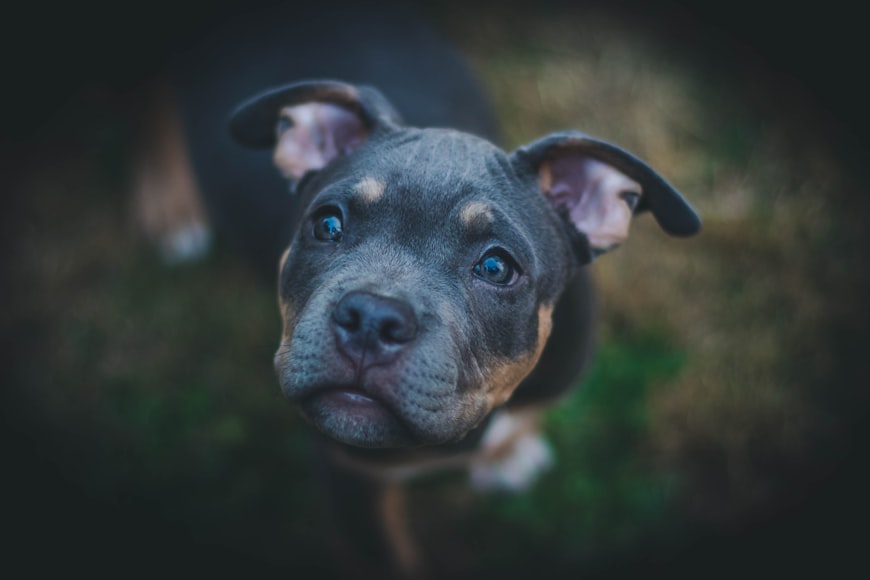Pomeranian Dry Skin Outline
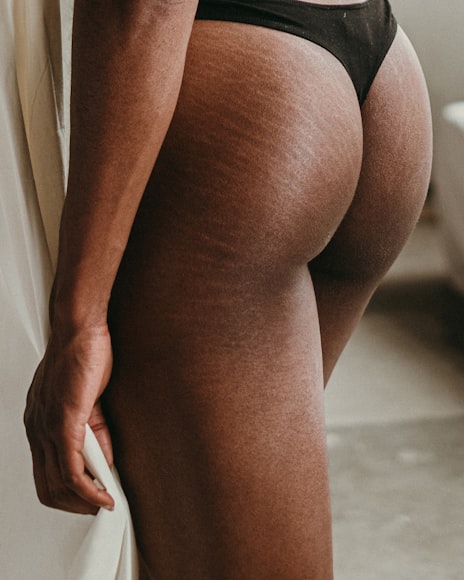
Introduction
Pomeranians, with their fluffy double coats, are known for their adorable appearance. However, these beloved companions can sometimes suffer from dry skin, causing discomfort and potential health issues. Understanding the causes, symptoms, and treatment options for Pomeranian dry skin is crucial for ensuring their well-being.
Causes of Dry Skin
- Genetics: Some Pomeranians may be predisposed to dry skin due to inherited factors.
- Environmental Factors: Dry air, extreme temperatures, and low humidity can contribute to dry skin.
- Dietary Deficiencies: A lack of essential fatty acids or vitamins in the diet can lead to dry skin.
- Allergic Reactions: Allergies to food, environmental allergens, or fleas can cause itchy and dry skin.
- Overbathing: Excessive bathing can strip natural oils from the skin, leaving it dry.
- Underlying Medical Conditions: Certain medical conditions, such as hypothyroidism, can cause dry skin as a symptom.
Symptoms of Dry Skin
- Flaky or scaly patches: Dry skin often appears as white or gray flakes on the fur.
- Dandruff: Similar to flakes, but smaller and more widespread.
- Itching: Dry skin can be itchy, causing Pomeranians to scratch or rub themselves excessively.
- Redness or inflammation: Dry skin can become irritated and inflamed, leading to redness.
- Hair Loss: Severe dry skin can result in hair loss in localized areas.
- Cracked Skin: In extreme cases, dry skin can crack and bleed.
Treatment Options
Moisturizing:
* Baths: Use lukewarm water and a gentle moisturizer specifically formulated for dogs.
* Topical Creams: Apply over-the-counter moisturizer or prescription creams containing ceramides, aloe vera, or oatmeal to soothe and hydrate the skin.
Dietary Changes:
* Essential Fatty Acids: Ensure a diet rich in omega-3 and omega-6 fatty acids, such as fish oil or flaxseed oil.
* Vitamin Supplementation: Consult with your veterinarian about vitamin supplements to address any dietary deficiencies.
Allergy Management:
* Identification: Determine the allergens causing the dry skin and avoid exposure as much as possible.
* Medication: Antihistamines or other medications prescribed by your veterinarian can help reduce allergic reactions.
Environmental Modifications:
* Humidifiers: Use humidifiers to increase moisture levels in the air.
* Protect from Extremes: Avoid exposing your Pomeranian to extreme heat or cold.
Underlying Medical Conditions:
* Medical Evaluation: If dry skin persists despite these measures, seek veterinary attention to rule out underlying medical conditions.
Prevention
- Regular Bathing: Bathe your Pomeranian once every two to three weeks using a mild shampoo.
- Brush Regularly: Brushing helps distribute natural oils and remove dead skin cells.
- Provide a Healthy Diet: Feed a balanced diet rich in essential nutrients.
- Manage Allergies: Identify and avoid allergens that may trigger dry skin.
- Avoid Overbathing: Excessive bathing can remove protective skin oils.
Conclusion
Pomeranian dry skin can be caused by various factors and can be uncomfortable and even painful for our furry companions. Understanding the causes, symptoms, and treatment options is essential for managing this condition effectively. By addressing dry skin promptly, you can ensure a healthy and happy life for your beloved Pomeranian.
Causes of Dry Skin
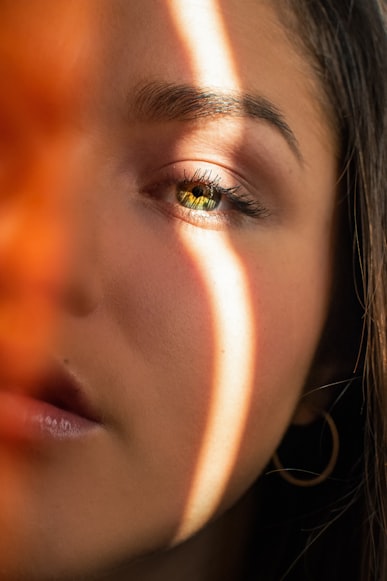
Pomeranians, known for their fluffy, double-layered coats, are prone to developing dry skin. This common condition can cause discomfort, itchiness, and even hair loss if left untreated. Understanding the underlying causes of dry skin in Pomeranians is crucial for effective management.
Bathing Too Frequently
Excessive bathing can strip away the natural oils that protect and moisturize the Pomeranian’s skin. These oils form a protective barrier, keeping the skin hydrated and preventing moisture loss. When bathing is too frequent, this protective barrier is disrupted, leading to dry, flaky skin.
Using Harsh Shampoos or Detergents
Harsh shampoos or detergents can contain strong chemicals that irritate the Pomeranian’s delicate skin. These chemicals can strip away natural oils, leaving the skin dry and vulnerable to further irritation. It is important to use gentle, pH-balanced shampoos specifically formulated for dogs.
Environmental Factors
Certain environmental factors can contribute to dry skin in Pomeranians, especially during the winter months when the air is dry and cold. Cold weather can cause the skin to produce less oil, leading to dryness. Dusty or polluted environments can also worsen the condition.
Other Possible Causes
In addition to these common factors, other underlying medical conditions or medications can contribute to dry skin in Pomeranians:
- Allergies: Allergies to food, environmental allergens, or contact allergens can cause skin irritation and dryness.
- Skin infections: Fungal or bacterial infections can disrupt the skin’s normal balance and lead to dryness.
- Hypothyroidism: This thyroid gland disorder can slow down metabolism, which can affect skin health and cause dryness.
- Medications: Certain medications, such as antibiotics or steroids, can have drying side effects on the skin.
Symptoms of Dry Skin
Dry skin in Pomeranians can manifest in various symptoms, including:
- Flaky skin
- Itchiness
- Redness
- Irritation
- Hair loss
- Crusty or scabby skin
Treatment and Prevention
Addressing dry skin in Pomeranians involves identifying the underlying cause and implementing appropriate treatment.
- Reduce bathing frequency: Bathing twice a month or less is generally recommended for Pomeranians, unless instructed otherwise by a veterinarian.
- Use gentle shampoos: Choose shampoos that are pH-balanced and specifically formulated for dogs. Avoid harsh chemicals and detergents.
- Moisturize the skin: Apply a dog-specific moisturizer as needed to replenish lost moisture and prevent further dryness.
- Control environmental factors: Avoid exposing your Pomeranian to excessive heat or cold. Use a humidifier in dry environments to increase humidity levels.
- Address underlying medical conditions: If an underlying medical condition is causing dry skin, consult with your veterinarian for proper diagnosis and treatment.
- Regular brushing: Regular brushing helps remove dead skin cells, distribute natural oils, and promote blood circulation.
Conclusion
Dry skin in Pomeranians can be a common issue, but it is manageable with proper care. By understanding the causes, symptoms, and treatment options, pet owners can effectively address dry skin and maintain a healthy, silky coat for their beloved companions. Remember to consult with your veterinarian if the condition persists or worsens to rule out any underlying medical issues.
Symptoms of Dry Skin
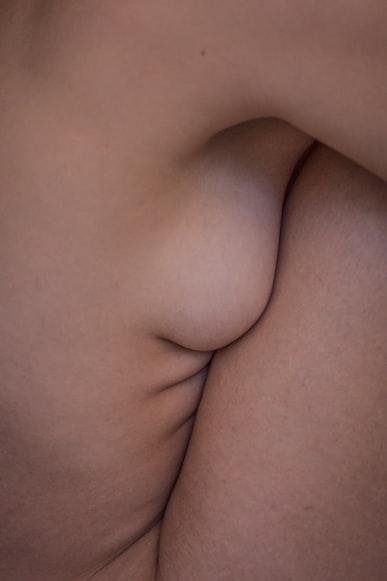
Pomeranians, the beloved toy breed known for their fluffy coats and adorable personalities, are prone to various skin conditions, including dry skin. Dry skin, also known as xerosis, is a common issue that can cause discomfort and affect your furry friend’s overall well-being. Understanding the symptoms and potential causes of dry skin in Pomeranians is crucial for providing proper care and treatment.
Symptoms of Dry Skin in Pomeranians
Dry skin in Pomeranians exhibits several telltale signs. The most common symptoms include:
-
Itching (Pruritis): Dry skin often leads to itching, which may cause your Pomeranian to scratch, lick, or bite at its skin. This can lead to further irritation and damage.
-
Flaking: As the skin becomes dry, it starts to flake or shed. You may notice white or grayish flakes on your Pomeranian’s coat or around its bedding.
-
Redness (Erythema): Dry skin can cause the skin to become inflamed and red, leading to visible patches of redness on your Pomeranian’s body.
-
Dull Coat: Due to lack of moisture, your Pomeranian’s coat may appear dull and lackluster, losing its usual shine and vibrancy.
-
Scaly Skin: In severe cases, dry skin can cause the skin to become scaly or crusty, resulting in a rough and uncomfortable surface.
-
Hair Loss: Persistent itching and scratching can lead to hair loss and bald patches.
Causes of Dry Skin in Pomeranians
Several factors can contribute to dry skin in Pomeranians, including:
-
Genetics: Some Pomeranians may be predisposed to dry skin due to genetic factors.
-
Environmental Allergies: Allergies to allergens such as pollen, dust, or certain foods can trigger dry skin and itching.
-
Dietary Deficiencies: A lack of essential fatty acids or vitamins in your Pomeranian’s diet can lead to dry skin and a dull coat.
-
Underlying Medical Conditions: Certain medical conditions, such as hypothyroidism or Cushing’s disease, can affect the skin’s moisture balance and cause dry skin.
-
Harsh Shampoos and Grooming Products: Using harsh shampoos or grooming products can strip the skin of its natural oils, leading to dryness.
Treatment for Dry Skin in Pomeranians
Treating dry skin in Pomeranians involves addressing the underlying cause and providing moisture and relief to the skin. Some common treatment options include:
-
Hypoallergenic Diet: Identifying and eliminating potential allergens from your Pomeranian’s diet can help reduce skin inflammation and dryness.
-
Supplements: Adding essential fatty acids or vitamin E supplements to your Pomeranian’s diet can help improve skin health and provide moisture.
-
Moisturizers: Applying hypoallergenic moisturizers or sprays to your Pomeranian’s skin can hydrate and soothe dry areas.
-
Medicated Shampoos: Veterinary-prescribed medicated shampoos can help treat underlying skin conditions and reduce inflammation.
-
Medication: In severe cases, your veterinarian may prescribe oral medications such as antihistamines or antibiotics to control itching and prevent infections.
Prevention of Dry Skin in Pomeranians
Preventing dry skin in Pomeranians is crucial for maintaining their skin health and comfort. Here are a few preventive measures you can consider:
-
Regular Grooming: Brush your Pomeranian regularly to remove loose hair and debris that can irritate the skin.
-
Choose Gentle Products: Opt for hypoallergenic shampoos and conditioners specifically designed for sensitive skin.
-
Moisturize Regularly: Apply a hypoallergenic moisturizer to your Pomeranian’s skin, especially during dry seasons or after bathing.
-
Avoid Overbathing: Excessive bathing can strip the skin of its natural oils, leading to dryness. Bathe your Pomeranian only when necessary, using lukewarm water.
-
Address Underlying Issues: If you suspect your Pomeranian has an underlying medical condition that may be contributing to dry skin, consult your veterinarian promptly for diagnosis and treatment.
By understanding the symptoms, causes, and treatment options for dry skin in Pomeranians, you can provide your furry friend with the necessary care and relief. Remember, maintaining a healthy skin is vital for your Pomeranian’s overall well-being and happiness.
Diagnosis
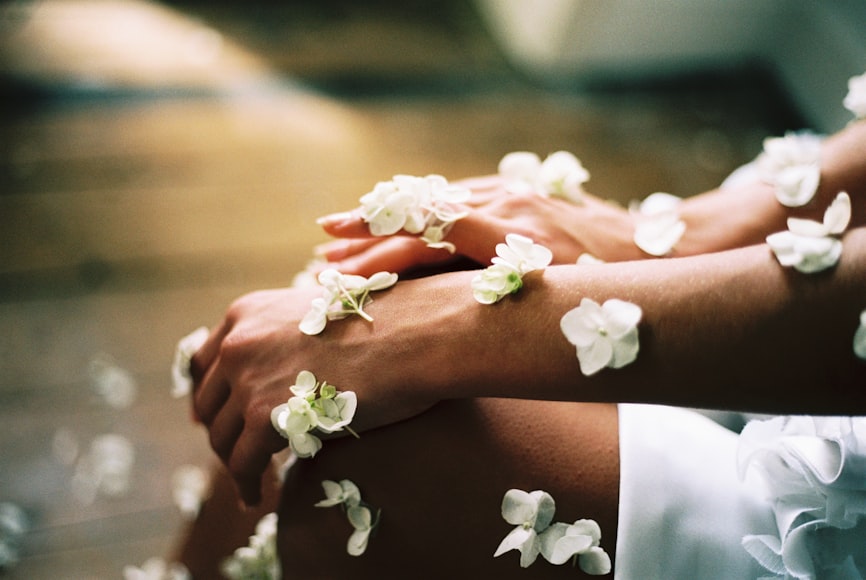
Dry skin, also known as xerosis, is a common skin condition in Pomeranians and other breeds of dogs. It can cause a variety of symptoms, including itching, flaking, and hair loss. If left untreated, dry skin can lead to more serious health problems, such as infection.
Diagnosis of Pomeranian Dry Skin
Diagnosing dry skin in Pomeranians requires a thorough examination by a veterinarian. The following steps are typically involved:
1. Physical Examination
The veterinarian will first perform a physical examination of your Pomeranian. This will include checking the skin for any signs of dryness, inflammation, or infection. The veterinarian will also check for any underlying medical conditions that may be contributing to the dry skin, such as allergies or hormonal imbalances.
2. Skin Scraping
In some cases, the veterinarian may recommend a skin scraping to rule out other conditions that may cause dry skin, such as mites or fungi. A skin scraping is a simple procedure in which the veterinarian uses a scalpel to gently scrape off a small sample of skin cells. The cells are then examined under a microscope to look for any abnormalities.
3. Blood Tests
In some cases, the veterinarian may recommend blood tests to rule out any underlying medical conditions that may be contributing to the dry skin. Blood tests can check for things like allergies, thyroid problems, and Cushing’s syndrome.
Treatment of Pomeranian Dry Skin
Once the underlying cause of the dry skin has been identified, the veterinarian will recommend the best course of treatment. Treatment may include:
- Topical medications: These medications are applied directly to the skin and can help to soothe irritation and reduce inflammation.
- Oral medications: These medications are taken by mouth and can help to control the underlying cause of the dry skin.
- Dietary changes: In some cases, changing your Pomeranian’s diet can help to improve the health of their skin and coat.
Prevention of Pomeranian Dry Skin
There are several things you can do to help prevent dry skin in your Pomeranian:
- Bathe them regularly: Bathing your Pomeranian regularly with a gentle shampoo can help to remove dirt and oils that can clog the pores and lead to dry skin.
- Brush their coat regularly: Brushing your Pomeranian’s coat regularly can help to distribute the natural oils that are produced by the skin.
- Use a humidifier: A humidifier can help to add moisture to the air, which can help to prevent dry skin.
- Avoid extreme temperatures: Extreme temperatures can dry out the skin. Keep your Pomeranian away from sources of heat, such as fireplaces and radiators.
Conclusion
Dry skin is a common problem in Pomeranians, but it can be easily diagnosed and treated. By following the steps outlined in this article, you can help to keep your Pomeranian’s skin healthy and comfortable.
Treatment
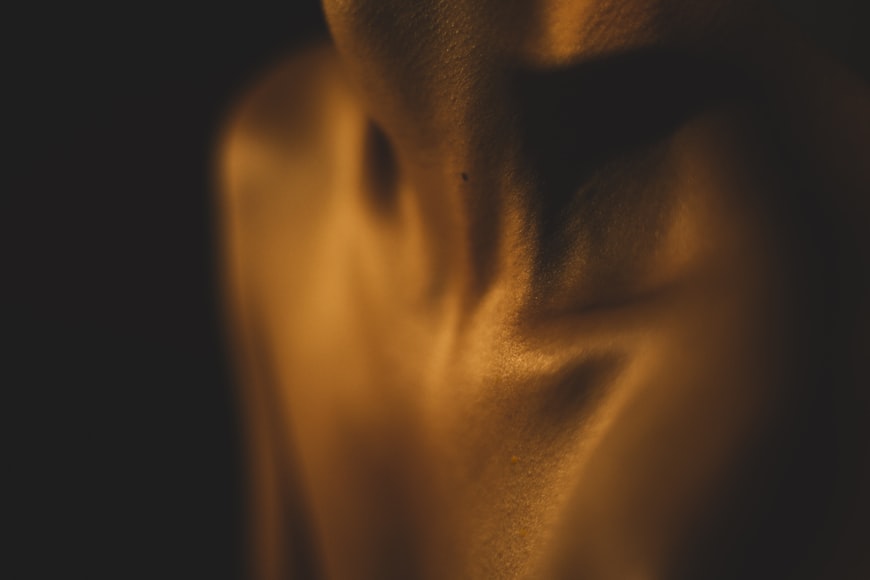
As a devoted dog pet blogger, I often encounter queries regarding common canine health issues. One such concern that frequently arises is dry skin in Pomeranians. This article delves into the causes of dry skin in Pomeranians and explores effective treatment options to alleviate discomfort and restore skin health.
Causes of Dry Skin in Pomeranians
Pomeranians’ double coats, while beautiful and protective, can also contribute to dry skin. The undercoat can trap dirt and allergens, leading to irritation and dryness. Other factors that can cause dry skin in Pomeranians include:
- Allergies and sensitivities
- Hormonal imbalances
- Nutritional deficiencies
- Parasites
- Autoimmune diseases
Treatment Options
Addressing the underlying cause of dry skin is crucial for long-term improvement. However, several treatment options can provide immediate relief and alleviate discomfort.
1. Medicated Shampoos
Medicated shampoos specifically designed for dry skin can effectively remove excess dirt and allergens while soothing the skin. Look for shampoos containing ingredients such as oatmeal, aloe vera, or salicylic acid, which have anti-inflammatory and moisturizing properties.
2. Topical Ointments
Topical ointments can provide targeted hydration and soothe irritated skin. Look for ointments containing ingredients like ceramides, hyaluronic acid, or petrolatum, which help trap moisture and protect the skin barrier.
3. Antibiotics (if Infection is Present)
If your Pomeranian has a secondary skin infection, your veterinarian may prescribe antibiotics to eliminate the bacteria or yeast causing the infection. It’s essential to follow the dosage instructions carefully and complete the entire course of antibiotics.
4. Dietary Modifications
A healthy diet rich in omega-3 fatty acids can help support skin health. Consider feeding your Pomeranian a high-quality diet containing fish oil supplements or foods rich in omega-3s, such as salmon, tuna, or mackerel.
5. Environmental Management
Control your Pomeranian’s environment to reduce exposure to allergens and irritants. Regular vacuuming, using hypoallergenic bedding, and avoiding harsh chemicals on your pet’s skin can help improve skin health.
Prevention
In addition to treatment, implementing preventive measures can help reduce the risk of dry skin in Pomeranians. Here are some tips:
- Brush your Pomeranian’s coat regularly to remove loose hair and dirt.
- Bathe your Pomeranian every 2-3 weeks using a gentle shampoo designed for dogs with dry skin.
- Avoid using human shampoos or products on your Pomeranian.
- Address any underlying allergies or sensitivities through diet or medication.
- Consider using a humidifier in your home during dry months to increase humidity levels.
Conclusion
Dry skin in Pomeranians can be a common issue, but with appropriate treatment and preventive measures, you can alleviate discomfort and restore your furry friend’s skin health. By addressing the underlying cause and implementing a comprehensive treatment plan, you can help your Pomeranian enjoy a healthier and itch-free life. Remember to consult with your veterinarian for personalized advice and guidance on the best course of action for your pet.
Prevention
Pomeranians, with their luscious fur coats, are known for their elegant appearance. However, their delicate skin can be prone to dryness, leading to discomfort and potential health issues. As a dog pet blogger, it’s crucial to provide your readers with comprehensive information on preventing this common ailment.
Causes of Dry Skin in Pomeranians
Understanding the underlying causes of dry skin in Pomeranians is essential for effective prevention. Some common factors include:
- Frequent bathing: Overwashing your Pomeranian can strip their skin of its natural oils, leaving it dry and irritated.
- Harsh shampoos and detergents: Using harsh chemicals can disrupt the skin’s pH balance and damage its protective barrier.
- Lack of moisture: Pomeranians have a thin undercoat, making them prone to losing moisture easily.
- Allergies: Food allergies, environmental allergies, or even contact allergies can trigger skin irritation and dryness.
- Atopy: A genetic predisposition to allergies can result in atopic dermatitis, causing chronic dry skin.
Prevention Strategies
Preventing dry skin in Pomeranians involves addressing the underlying causes and implementing proactive measures. Here are some essential tips:
1. Bathing Less Frequently
Avoid bathing your Pomeranian too often. Once every 7-10 days is sufficient to maintain their cleanliness without over-drying their skin.
2. Use Gentle Shampoos and Detergents
Opt for shampoos and detergents specifically designed for dogs with sensitive skin. Look for formulas that are pH-balanced and free from harsh chemicals like sulfates and parabens.
3. Moisturize Regularly
Applying a moisturizer after bathing and during dry seasons can help replenish the skin’s moisture levels. Choose moisturizers that are gentle, non-greasy, and contain humectants like aloe vera or hyaluronic acid.
4. Manage Allergies
If you suspect your Pomeranian has allergies, consult with a veterinarian to identify the triggers and develop an appropriate management plan. This may involve avoiding certain foods, using hypoallergenic grooming products, or administering antihistamines.
5. Provide a Healthy Diet
A well-balanced diet rich in omega-3 fatty acids, vitamins, and minerals can support healthy skin. Consider consulting with a veterinary nutritionist for personalized dietary recommendations.
6. Avoid Over-brushing
While brushing is essential for maintaining your Pomeranian’s coat, over-brushing can irritate the skin. Limit brushing to once or twice a week and use a soft brush that won’t damage the skin.
7. Protect from Extreme Temperatures
Cold, dry air and prolonged exposure to the sun can exacerbate dry skin in Pomeranians. Provide shelter during extreme weather and consider using a coat or sunscreen to protect their sensitive skin.
When to Seek Veterinary Care
If you notice persistent dry skin, redness, inflammation, or other skin issues in your Pomeranian, it’s crucial to seek veterinary care promptly. Underlying medical conditions, such as infections, parasites, or autoimmune disorders, may require professional diagnosis and treatment.
By implementing these preventive measures, you can help keep your Pomeranian’s skin healthy, comfortable, and radiantly beautiful for years to come. Remember, regular veterinary checkups and prompt attention to any skin concerns are essential for maintaining the well-being of your furry friend.
Home Remedies
Pomeranians, with their fluffy double coats, are prone to developing dry skin, a common condition that can cause discomfort, itching, and even hair loss. While there are various commercial products available to address this issue, home remedies can offer a gentle and natural approach.
Understanding Dry Skin in Pomeranians
Dry skin in Pomeranians can have multiple causes, including:
- Genetics: Some Pomeranians are simply more prone to developing dry skin due to their genetics.
- Environmental factors: Low humidity, cold weather, and certain allergens can exacerbate skin dryness.
- Dietary deficiencies: A lack of essential fatty acids or vitamins in the diet can contribute to skin dryness.
- Underlying medical conditions: Skin infections, allergies, or hormonal imbalances can also manifest as dry skin.
Home Remedies for Pomeranian Dry Skin
Before implementing any home remedies, it’s crucial to consult with a veterinarian to rule out any underlying medical conditions. Once cleared, the following home remedies can help soothe and nourish your Pomeranian’s dry skin:
a. Oatmeal Baths
Oatmeal is renowned for its anti-inflammatory and moisturizing properties. To create an oatmeal bath, grind 1 cup of plain, unflavored oatmeal into a fine powder. Sprinkle the powder into warm water and allow your Pomeranian to soak for 10-15 minutes. Once the bath is finished, thoroughly rinse your dog and pat them dry.
b. Coconut Oil
Coconut oil is a natural moisturizer rich in fatty acids and vitamins. Apply a small amount of coconut oil to your Pomeranian’s skin, focusing on dry areas. Massage the oil gently into their coat, taking care to avoid their eyes and mouth. Coconut oil can also be added to their food as a dietary supplement.
Other Home Remedies
- Omega-3 Fatty Acid Supplements: Omega-3 fatty acids are essential for maintaining skin health. Consider adding fish oil or flaxseed oil supplements to your Pomeranian’s diet.
- Humidifiers: Dry indoor air can worsen skin dryness. Using a humidifier can increase humidity levels and help soothe your dog’s skin.
- Hypoallergenic Shampoo and Conditioner: Avoid using harsh shampoos and conditioners that contain sulfates or parabens. Instead, opt for hypoallergenic products specifically formulated for dogs with sensitive skin.
- Grooming: Regular brushing helps remove dead skin cells and distribute natural oils throughout the coat.
Prevention Tips
In addition to home remedies, there are preventive measures you can take to minimize the risk of dry skin in your Pomeranian:
- Maintain a Healthy Diet: Ensure your dog is receiving a high-quality diet that provides all essential nutrients, including fatty acids and vitamins.
- Provide Adequate Hydration: Make sure your Pomeranian has constant access to fresh water, especially during warm or dry weather.
- Limit Bathing: Over-bathing can strip away natural oils from the skin. Bathe your Pomeranian no more than once or twice a month.
- Avoid Harsh Temperatures: Keep your Pomeranian away from extreme cold or heat, as these conditions can exacerbate skin dryness.
By implementing these home remedies and prevention tips, you can alleviate your Pomeranian’s dry skin and help them maintain a healthy, shiny coat. However, if your dog’s skin condition persists or worsens, don’t hesitate to seek veterinary care.
When to See a Veterinarian
Pomeranians, known for their fluffy and abundant coats, are prone to developing dry skin, a condition that can cause discomfort, irritation, and even hair loss. While there are numerous home remedies and treatments that can alleviate dry skin symptoms, it’s crucial to know when it’s time to consult a veterinarian.
What is Dry Skin in Pomeranians?
Dry skin, also known as canine atopic dermatitis, is a common skin condition that affects dogs, including Pomeranians. It arises due to a deficiency of natural oils and moisture in the skin, leading to dryness, irritation, and inflammation.
Symptoms of Dry Skin in Pomeranians:
- Flaky or scaly skin
- Itching, redness, and irritation
- Hair loss or thinning
- Crusty or scabby patches
- Hot spots
- Bacterial or yeast infections
Causes of Dry Skin in Pomeranians:
- Allergies (food, environmental, flea)
- Skin infections (bacteria, yeast)
- Hypothyroidism
- Cushing’s disease
- Nutritional deficiencies
- Stress
Home Remedies for Dry Skin in Pomeranians:
There are several home remedies that dog owners can use to soothe their Pomeranian’s dry skin:
- Oatmeal baths
- Aloe vera gel
- Coconut oil
- Fish oil supplements
- Hypoallergenic shampoos and conditioners
When to See a Veterinarian:
While home remedies can often provide relief from dry skin symptoms, there are certain instances where it’s crucial to seek veterinary attention.
If Symptoms are Severe:
- If your Pomeranian’s dry skin is severe, causing extensive itching, redness, or swelling, you should consult a veterinarian as soon as possible. These symptoms can indicate a deeper underlying issue, such as an infection or allergy.
If Home Remedies Do Not Improve the Condition:
- If you have tried various home remedies and your Pomeranian’s dry skin does not improve or worsens, it’s time to consult a veterinarian. They can diagnose the underlying cause and prescribe appropriate medications or treatments.
Diagnosis and Treatment:
Your veterinarian will conduct a thorough physical examination of your Pomeranian and may order diagnostic tests to determine the underlying cause of dry skin. Depending on the diagnosis, they may prescribe medications such as antibiotics, antihistamines, or corticosteroids. They may also recommend specialized shampoos, conditioners, or topical treatments to moisturize and soothe the skin.
Prevention:
While there is no guaranteed way to prevent dry skin in Pomeranians, certain measures can help reduce the risk:
- Feed a high-quality diet rich in omega-3 fatty acids.
- Identify and avoid any allergens that trigger dry skin.
- Bathe your Pomeranian regularly using hypoallergenic products.
- Use a humidifier in your home, especially during winter months.
- Manage stress levels, as stress can aggravate dry skin symptoms.
Conclusion:
Dry skin in Pomeranians can be a frustrating and uncomfortable condition for both the dog and its owner. While home remedies can often provide temporary relief, it’s essential to seek veterinary attention if symptoms are severe or do not improve with home care. Your veterinarian can accurately diagnose the underlying cause and provide the most appropriate treatment plan to restore your Pomeranian’s skin health and comfort.
Additional Tips
Pomeranians, with their adorable fluffy coats, are prone to various skin issues, one of which is dry skin. Dry skin can be an uncomfortable and irritating problem for your furry friend, causing itching, flaking, and even hair loss. Understanding the causes, treatments, and preventive measures for dry skin in Pomeranians is crucial for maintaining their skin health and overall well-being.
Causes of Dry Skin in Pomeranians
There are several factors that can contribute to dry skin in Pomeranians:
- Genetics: Some Pomeranians are predisposed to dry skin due to genetic factors.
- Allergies: Environmental or food allergies can cause inflammation and dryness of the skin.
- Diet: A diet deficient in essential fatty acids or vitamins can lead to dry skin.
- Medications: Certain medications, such as corticosteroids, can have a drying effect on the skin.
- Environmental factors: Extreme temperatures, low humidity, or exposure to chemicals can all contribute to dry skin.
- Underlying medical conditions: Skin infections or disorders can also cause dry skin as a symptom.
Treatments for Dry Skin in Pomeranians
If you suspect your Pomeranian has dry skin, it’s important to consult with your veterinarian to determine the underlying cause. Once the cause is identified, appropriate treatments can be recommended:
- Hypoallergenic diet: If allergies are suspected, your veterinarian may recommend a hypoallergenic diet to eliminate potential triggers.
- Omega-3 fatty acid supplements: Essential fatty acids are crucial for maintaining healthy skin. Supplements or a diet rich in omega-3s can help improve skin moisture.
- Topical medications: Medicated shampoos, conditioners, or creams containing soothing ingredients like aloe vera or oatmeal can help relieve itching and inflammation.
- Home remedies: Applying coconut oil or olive oil to the affected areas can provide temporary relief from dryness.
- Environmental management: Keep your home at a comfortable humidity level, avoid exposing your Pomeranian to harsh chemicals, and provide soft, breathable bedding.
- Treat underlying medical conditions: If a medical condition is causing the dry skin, treating that condition may resolve the skin issue as well.
Additional Tips for Preventing and Managing Dry Skin in Pomeranians
In addition to treatments, implementing the following preventive measures can help reduce the risk of dry skin in Pomeranians:
- Avoid using human products on dogs: Human products, such as shampoos, conditioners, or lotions, are not designed for dogs and can worsen dry skin.
- Bathe your Pomeranian less frequently: Overbathing can strip away the skin’s natural oils, leading to dryness. Aim to bathe your Pomeranian once or twice a month, using a gentle, hypoallergenic shampoo.
- Moisturize regularly: After bathing, apply a dog-safe moisturizer to your Pomeranian’s skin to help lock in moisture.
- Keep your Pomeranian’s nails trimmed: Long nails can scratch the skin and worsen dryness.
- Provide a healthy diet: Feed your Pomeranian a diet rich in high-quality protein, essential fatty acids, and vitamins to support skin health.
- Avoid excessive brushing: While brushing is important for removing loose hair, excessive brushing can irritate the skin. Brush your Pomeranian gently once or twice a day.
Conclusion
Dry skin in Pomeranians is a common problem that can cause discomfort and other health issues. By understanding the causes and implementing effective treatments and preventive measures, you can help your furry friend maintain healthy, hydrated skin. Remember to consult with your veterinarian for an accurate diagnosis and personalized treatment plan for your Pomeranian’s dry skin concerns.
Resources
Pomeranians are known for their luscious, fluffy coats, but sometimes their skin can become dry and irritated. Dry skin can cause itching, scratching, and even hair loss, so it’s important to address the problem quickly and effectively.
Causes of Dry Skin in Pomeranians
- Allergies: Pomeranians can be allergic to a variety of allergens, such as dust mites, pollen, and food. Allergies can cause inflammation and itching, which can lead to dry skin.
- Diet: A diet that is deficient in essential nutrients, such as omega-3 fatty acids, can contribute to dry skin.
- Environmental factors: Cold, dry weather can worsen dry skin in Pomeranians.
- Medical conditions: Certain medical conditions, such as hypothyroidism, can cause dry skin.
- Grooming: Harsh grooming techniques, such as excessive brushing or bathing, can strip the skin of its natural oils.
Symptoms of Dry Skin in Pomeranians
- Itching
- Scratching
- Redness
- Flaking
- Hair loss
- Dull coat
Treatment for Dry Skin in Pomeranians
Treating dry skin in Pomeranians involves addressing the underlying cause and providing soothing treatments.
1. Identify and eliminate allergens: If you suspect that your Pomeranian has allergies, consult with a veterinarian to determine the cause and develop a treatment plan.
2. Improve diet: Feed your Pomeranian a high-quality diet that is rich in omega-3 fatty acids. Good sources of omega-3s include fish, flaxseed, and olive oil.
3. Protect from environmental factors: During cold, dry weather, keep your Pomeranian indoors as much as possible. You can also use a humidifier to add moisture to the air.
4. Address underlying medical conditions: If your Pomeranian has an underlying medical condition that is causing dry skin, your veterinarian will recommend appropriate treatment.
5. Gentle grooming: Use a gentle brush and avoid bathing your Pomeranian too frequently. When you do bathe them, use a moisturizing shampoo and conditioner.
6. Topical treatments: Applying a moisturizing cream or spray to your Pomeranian’s skin can help to soothe itching and dryness. Look for products that contain ingredients such as aloe vera, oatmeal, or coconut oil.
7. Oatmeal baths: Oatmeal baths can help to soothe and moisturize dry skin. Add 1/2 cup of ground oatmeal to a warm bath and soak your Pomeranian for 10-15 minutes.
8. Coconut oil: Applying coconut oil to your Pomeranian’s skin can also help to moisturize and soothe dry skin.
References:








